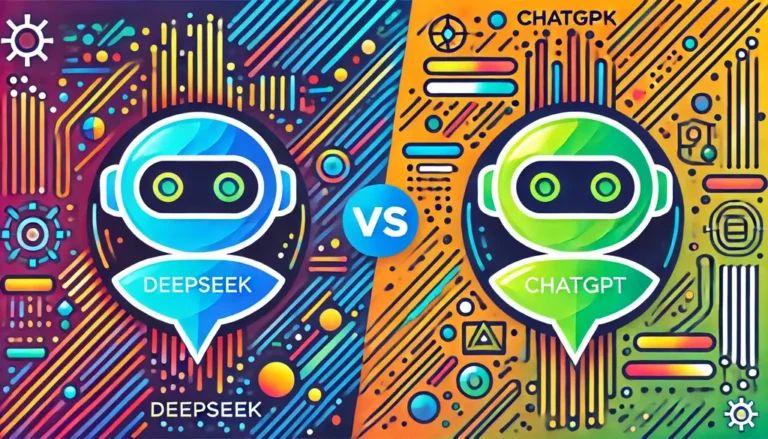You’ve heard the buzzwords—machine learning, neural networks, natural language processing. It all comes under a more familiar umbrella: Artificial Intelligence, or AI. But it’s not just about the buzzwords or the complex algorithms running behind the scenes. It’s about the tangible changes AI is making in the way we do business. The transformation is real, measurable, and it’s happening right now.
The Rise of AI in Business
Decades ago, AI was a subject of science fiction novels, a distant dream of the future. Fast forward to today, it’s not just a reality but an indispensable part of various industries. The adoption rate of AI in business has skyrocketed, primarily due to its capability to perform tasks more efficiently and accurately than human beings.
According to McKinsey & Company, about 47% of companies have embedded at least one AI capability into their standard business processes. That’s not just a statistic; it’s a sign of the transformative power of AI.
Five Key Areas Where AI is Making Waves
So, where exactly is AI making its mark? The application of AI in business can be broadly categorized into five significant areas:
Marketing
AI-driven tools can analyze vast amounts of consumer data to produce actionable insights. This allows businesses to craft highly personalized marketing campaigns. Think predictive analytics for customer behavior, AI chatbots for interactive customer engagement, and even automated content creation.
Sales
Sales strategies have been revolutionized by AI. Advanced algorithms can predict which leads are more likely to convert, allowing sales teams to focus their efforts effectively. Additionally, machine learning models can optimize pricing strategies in real-time.
Customer Support
Customer service bots, powered by AI, can handle a range of queries, freeing up human customer support agents to deal with more complex issues. These bots are becoming increasingly sophisticated, able to understand and process natural language with great accuracy.
Operations
From supply chain optimization to automated quality checks, AI is becoming a cornerstone for efficient business operations. Automation driven by AI not only speeds up processes but also minimizes human error.
HR
Even the human resources department isn’t untouched by the AI revolution. AI tools can sift through resumes to find the most suitable candidates, predict employee attrition, and even help in workforce planning.
See also: AI Task Automation And Its Role In Business Scaling
Case Studies: Businesses Transformed by AI
Success stories often speak louder than theory. To really understand AI’s transformative power, let’s dive into some real-world examples:
Netflix
The streaming giant uses machine learning algorithms to make highly accurate recommendations to its viewers, thus maximizing viewer engagement and satisfaction. It’s reported that their AI algorithms save them $1 billion a year through customer retention.
Starbucks
Starbucks employs AI to analyze customer preferences and buying habits. Their app uses this data to offer personalized recommendations and promotions, driving up both sales and customer loyalty.
Salesforce
The company utilizes Einstein AI to provide sales forecasts and customer insights, allowing businesses to make data-driven decisions. The AI capabilities are built into their CRM, making it easy for sales teams to be more productive and efficient.
AI’s Competitive Edge
It’s easy to see that adopting AI technologies brings a wealth of benefits. But what makes it a true game-changer is the competitive edge it offers over those still clinging to traditional methods. Here’s why:
Speed
Automating processes using AI can drastically reduce the time needed to perform tasks, from data analysis to customer service.
Accuracy
The predictive accuracy of AI algorithms means you can trust the insights and recommendations provided, leading to better decision-making.
Scalability
AI solutions are often scalable, meaning as your business grows, the technology can grow with it without significant operational hiccups.
Personalization
The capability to tailor services and products to individual customer preferences is a massive leap forward in customer satisfaction and, consequently, in building brand loyalty.
Challenges and Risks
That said, integrating AI into your business isn’t without its challenges and risks:
Data Privacy
When you’re collecting and analyzing data, the concern of data privacy can’t be overlooked. Regulations like GDPR have set stringent guidelines on data collection and usage.
Implementation Costs
The initial cost of implementing AI technology can be high, which may discourage small businesses from taking the plunge.
Skill Gap
The specialized skills required to maintain and interpret AI systems mean you may need to invest in training your existing workforce or hiring new talent.
The Future of AI in Business
While the current applications of AI are transformative, the future holds even more promise. Businesses should keep an eye out for:
Decentralized AI
Emerging technologies like blockchain promise to make AI applications more transparent, secure, and decentralized.
Ethics and AI
As AI technologies advance, there will be a growing focus on ethical considerations, such as preventing algorithmic bias and ensuring responsible AI usage.
Autonomous Systems
From self-driving cars to drones for delivery, autonomous systems are poised to become more integrated into various business operations.
Human-AI Collaboration
Rather than replacing humans, AI will increasingly serve to augment human abilities, making for a more collaborative and productive workforce.
See also: The Do’s And Don’ts Of AI Reporting In Business
Conclusion
We’ve journeyed through the rise of AI in business, delved into its applications, looked at real-world case studies, and peeked into the future. The impact of AI on the business landscape is undeniable. It offers a significant competitive edge but comes with its own set of challenges and responsibilities. Adopting AI isn’t an option; it’s a necessity for any business aiming for long-term success.
FAQ Section
Q: Is AI only for big corporations?
A: No, small and medium-sized businesses can also benefit from AI, thanks to scalable and affordable solutions available today.
Q: How difficult is it to integrate AI into my existing business model?
A: With the right expertise and planning, AI can be seamlessly integrated into most business models.
Q: What about job displacement due to automation?
A: While automation may replace certain tasks, it also creates opportunities for new roles centered around human-AI collaboration.
Call to Action
Ready to take your business to the next level with AI? Don’t get left behind in the ever-evolving world of Artificial Intelligence. Reach out to us to discover how AI can revolutionize your business operations.







